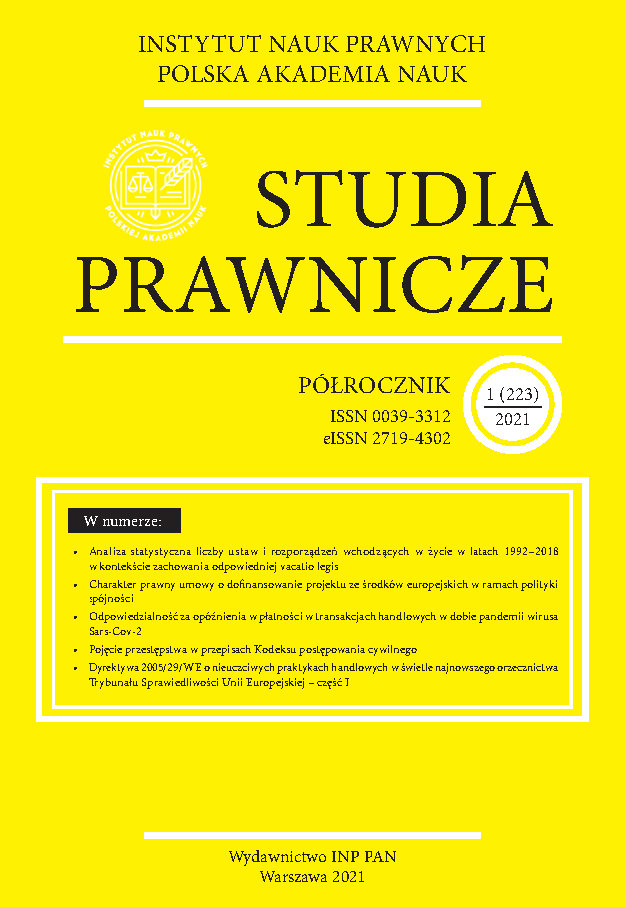Prawo petycji do parlamentu Republiki Federalnej Niemiec
The right of petition to the parliament of the Federal Republic of Germany
Author(s): Ewa WójcickaSubject(s): Law, Constitution, Jurisprudence
Published by: Instytut Nauk Prawnych PAN
Keywords: Federal Republic of Germany; parliament; petition; Petitions Committee; history of law
Summary/Abstract: Petitioning the Parliament in the Federal Republic of Germany is seen as one of the fundamental rights. The article provides an analysis of the right of petition specified expressly in Article 17 of the Basic Law for the Federal Republic of Germany which authorizes “everyone” to address written “requests” or “complaints” to “competent authorities” and to the “representation of the nation”. The right of petition is also provides all constitutions of the Länder. Petition is a request or complaint made on one’s own behalf, for third parties or in the general interest. Request is demand and proposal for act or omission by organs of state, authorities or other institutions discharging public functions. In particular it may include proposal for legislation. Complaint shall consist in objection to act and omission by organs of state, authorities or other institutions discharging public functions. It should be emphasized that there are different types of petitions: multiple petitions, collective petitions, mass petitions and public petitions. Public petition is a new form of a petition in the 21st century. It may be submitted to the Petitions Committee by anyone, either individually or jointly with others, using the form provided. Public petitions are published on the Petitions Committee’s webpage. Every natural person and every legal person under private law resident in Germany has the right of petition. The right of petition can be restricted for members of the armed forces. The right of petition does not depend on the one’s personal circumstances, such as nationality. Even legal capacity is not required in order to exercise the right of petition, however the petitioner have to express his concern intelligibly. Article 45c of the Basic Law obliges the Bundestag to appoint a Petitions Committee to deal with petitions addressed to the Bundestag. “A Law on the Powers of the Petitions Committee of the German Bundestag of 19 July 1975”, “Rules of Procedure of the German Bundestag” and “Principles of the Petitions Committee governing the Treatment of Requests and Complaints of 8 March 1989” regulate the committee’s powers. The Petitions Committee can in particular: request comments from the Federal Government and hear government representatives, require official bodies to provide it with files, visit federal institutions. The Petitions Committee cannot intervene in conflicts between individual citizens under private law, it also cannot review court judgments or other court decisions. As soon as the facts of the case raised by a petition have been clarified and the legal situation has been assessed, the Petitions Committee presents a recommendation for a resolution on how the petition should be dealt with conclusively before the plenary of the Bundestag. The recommendation as to how the Bundestag should deal with a petition conclusively may include in particular: referral to the Federal Government for remedial action or for reexamination, referral as background material, forwarding to the European Parliament. Once the resolution has been adopted by the plenary, the petitioner is sent an official reply setting out the decision reached and the grounds on which it was taken.
Journal: Studia Prawnicze
- Issue Year: 191/2012
- Issue No: 2
- Page Range: 5-31
- Page Count: 27
- Language: Polish

